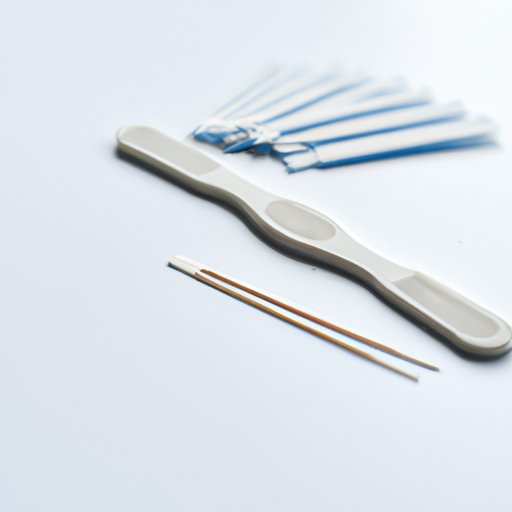
Introduction
If you are considering Kyleena as a contraceptive option, you may have heard concerns about potential weight gain. Kyleena is a type of hormonal intrauterine device (IUD) that is placed in the uterus to prevent pregnancy. Despite the many benefits of this type of contraception, rumors and myths abound about its side effects. In this article, we will examine the link between Kyleena and weight gain, and provide evidence-based information to help you make an informed decision about your birth control.
The Science Behind Kyleena and Weight Gain
First, let’s talk about how Kyleena works. The IUD delivers a small amount of the hormone progestin (levonorgestrel) directly to the uterus, which thickens cervical mucus and reduces the chances of sperm entering the uterus and fertilizing an egg. Compared to other hormonal contraceptives, such as the birth control pill, Kyleena releases a lower dose of progestin throughout the day.
It is true that hormonal changes in the body can impact weight gain. Progestin, the hormone in Kyleena, can cause fluid retention and bloating in some women. However, studies haven’t shown a strong link between progestin-only contraception like Kyleena and weight gain.
The Experience of Women with Kyleena
Many women have reported changes in weight after using Kyleena. Some women claim to have lost weight while others say that the weight gain was significant. However, it is important to note that the relationship between weight and Kyleena is still up for debate.
Women who have experienced weight gain often attribute it to the hormonal changes caused by Kyleena. Others experience no changes at all. Some users experience weight gain in the first few months of use, but it tends to level out over time.
Bust the Myth: Is Weight Gain Really a Common Side Effect of Kyleena?
Research on the matter is limited, but studies thus far found only a small relationship between progestin-only formulation, like Kyleena and weight gain. Most studies suggest that changes in women’s weight are due to lifestyle factors and eating habits rather than hormonal changes caused by IUDs.
It is important to pay attention to your weight and overall well-being while using Kyleena. That said, most studies suggest that there’s no evidence to suggest that there is a significant link between Kyleena and weight gain or other adverse effects.
The Conversation With Your Doctor
When choosing your contraceptive, it is always best to consult with your doctor about your concerns and preferences. You should provide your medical provider with a thorough medical history, taking the time to talk about your concerns and possible side effects.
When discussing Kyleena, make sure you talk about medication history and any underlying conditions. This information will help your doctor determine whether an IUD is the right choice for you.
How to Manage Weight Changes with Kyleena
For those users who have noted an impact on their weight, your doctor may suggest lifestyle changes to offset it. Examples of a healthy lifestyle include regular exercise, a balanced diet, proper sleep, and the avoidance of high caloric foods. While some weight gain might be associated with Kyleena, it is important to keep in mind that other factors could be at play, which may not have to do with the contraceptive.
Conclusion
All in all, Kyleena remains a highly effective birth control option that should be considered by women looking to prevent pregnancy. The research remains inconclusive whether Kyleena specifically causes weight gain or the changes in weight are brought on by other factors. It is important to remember to consult with your medical provider when making decisions about birth control options and to take proper care of your general well-being.




